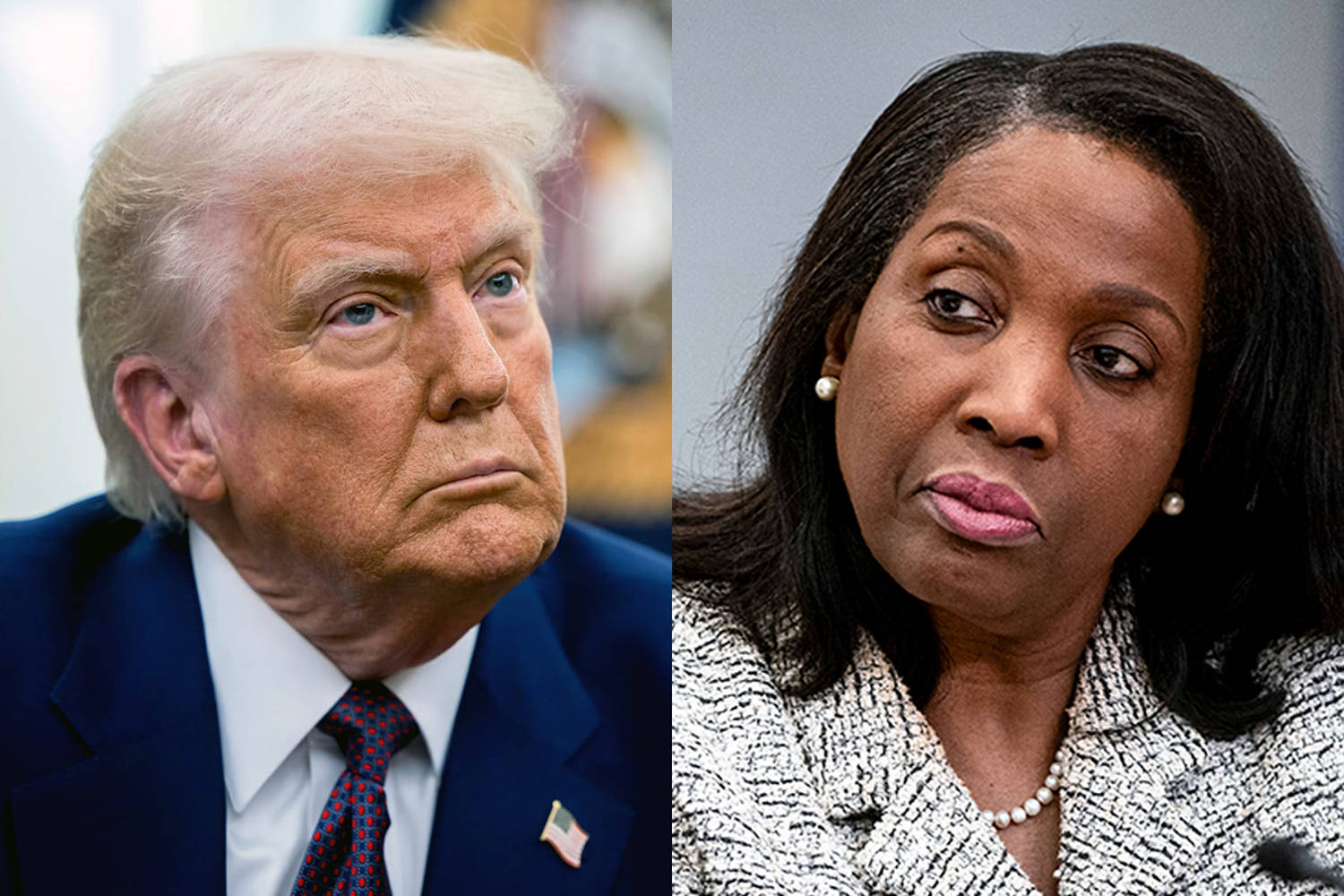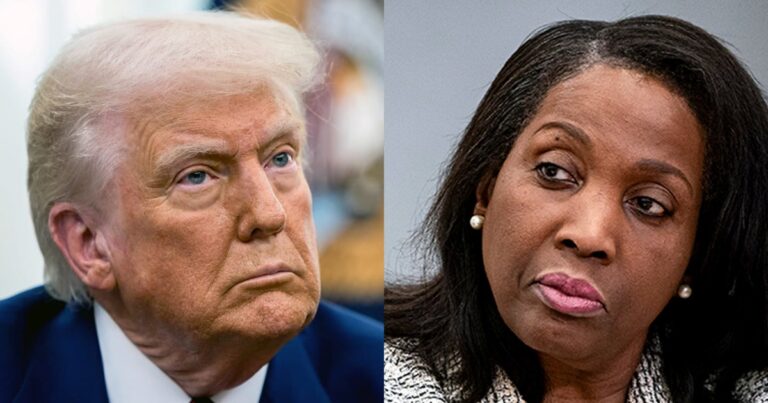
Economic and financial analysts are warning that President Donald Trump’s attempt to fire Federal Reserve governor Lisa Cook risks undermining the central bank’s independence — something that could ultimately put U.S. households’ finances at risk.
Late Monday, Trump moved to fire Cook over allegations of mortgage fraud. He cited a “criminal referral” from Federal Housing Finance Agency Director William Pulte that alleged discrepancies on Cook’s mortgage application documents. Cook has refused to step down, and on Tuesday she said she was planning to file a lawsuit challenging Trump’s move.
Cook serves on the Federal Reserve’s committee for setting interest rates throughout the economy. To determine where that rate should be, the committee members weigh risks to unemployment and inflation. When the job market starts to look weak, the Fed tends to lower rates. When the risk from inflation is greater, it tends to increase them. Both moves carry risks: Higher rates can stifle economic growth, while lower rates can lead to ballooning inflation.
Trump has called for lower rates since he took office, citing a general desire to bolster economic growth while dismissing concerns about inflation. While past presidents have expressed views about monetary policy, Trump’s influence attempts are largely unprecedented — no Fed member has ever been removed for cause.
It’s setting off alarm bells, not simply over disagreements about interest rate levels, but for what undue influence on the Fed could do to the economy. Academics have consistently concluded that meddling with the independence of central banks like the Federal Reserve can lead to worsening inflation, since it removes a key check on the government’s tendency to borrow as much money as it can.
“Presidential capture of the Fed would signal to decision-makers throughout the economy that interest rates will no longer be set on the basis of sound data or economic conditions — but instead on the whims of the president,” the Economic Policy Institute said in a statement.
“Confidence that the Fed will respond wisely to future periods of macroeconomic stress — either excess inflation or unemployment — will evaporate,” it added.
Interfering with the Fed’s independence “will make markets less stable and fuel inflationary pressures — hurting working people and weakening the economy as a whole,” Elizabeth Wilkins, who was chief of staff to the chair at the Federal Trade Commission under Presidents Barack Obama and Joe Biden, said in a statement.
Trump administration officials have dismissed concerns about threats to the Fed’s independence and doubled down on the accusations against Cook.
So far, the committee has not budged on rates. Although its membership consists mostly of appointees named by Biden, the members historically avoid political conflicts. But by removing Cook, who was appointed by Biden in 2022, Trump would be able to appoint another voting member who sees things his way. That would still not create a majority — and analysts have noted that Cook was somewhat more inclined to lower rates.
But the message from Trump couldn’t be clearer, experts say.
“We have to be honest that Lisa Cook was likely targeted … and then disposed of without due process,” Peter Boockvar, an independent economist and market strategist and author of The Boock Report, said in a note. The goal, he said, was to “remake the Fed with people who will be most inclined to cut interest rates.”
“The real question should be, did she commit mortgage fraud?” Commerce Secretary Howard Lutnick said in an appearance on CNBC on Tuesday. “Yes or no, and if you did commit mortgage fraud, please get out of the federal government. Get out of the seat of the governor of the Federal Reserve and go away.”
A White House representative did not immediately respond to a request for comment.
As of Tuesday morning, market reaction has been somewhat muted. All three major stock indexes were slightly lower in early trading, while the dollar’s value against a basket of other currencies declined somewhat. Gold prices have also not moved much. But the yield, or return demanded by investors for lending to the government, on the 30-year Treasury note rose — a sign investors are worried about longer-term inflation concerns.
The dispute over Cook is likely to wind up in the Supreme Court, which recently issued a ruling that said while the president has wide latitude to control federal agencies, his ability to make personnel decisions at the Federal Reserve may be more limited.
Some analysts believe markets are not taking the threat to the Fed’s independence seriously enough. In a note to clients, George Saravelos, head of foreign exchange research at Deutsche Bank, raised the specter of “fiscal dominance” — in which the president has too much say over monetary policy and interest rates.
“There is no question in our view that the Fed is now subject to intensifying fiscal dominance risks,” he wrote. “What is a bigger surprise to us is that the market is not more concerned.”

